Three important things about Electric Vehicles (EVs):
1. EVs are less expensive to own than ICE vehicles.
2. EVs are better for the environment and changing climate.
3. The World is moving to EVs for personal transportation.
NYT: Electric Cars Are Better for the Planet and Cheaper to Own
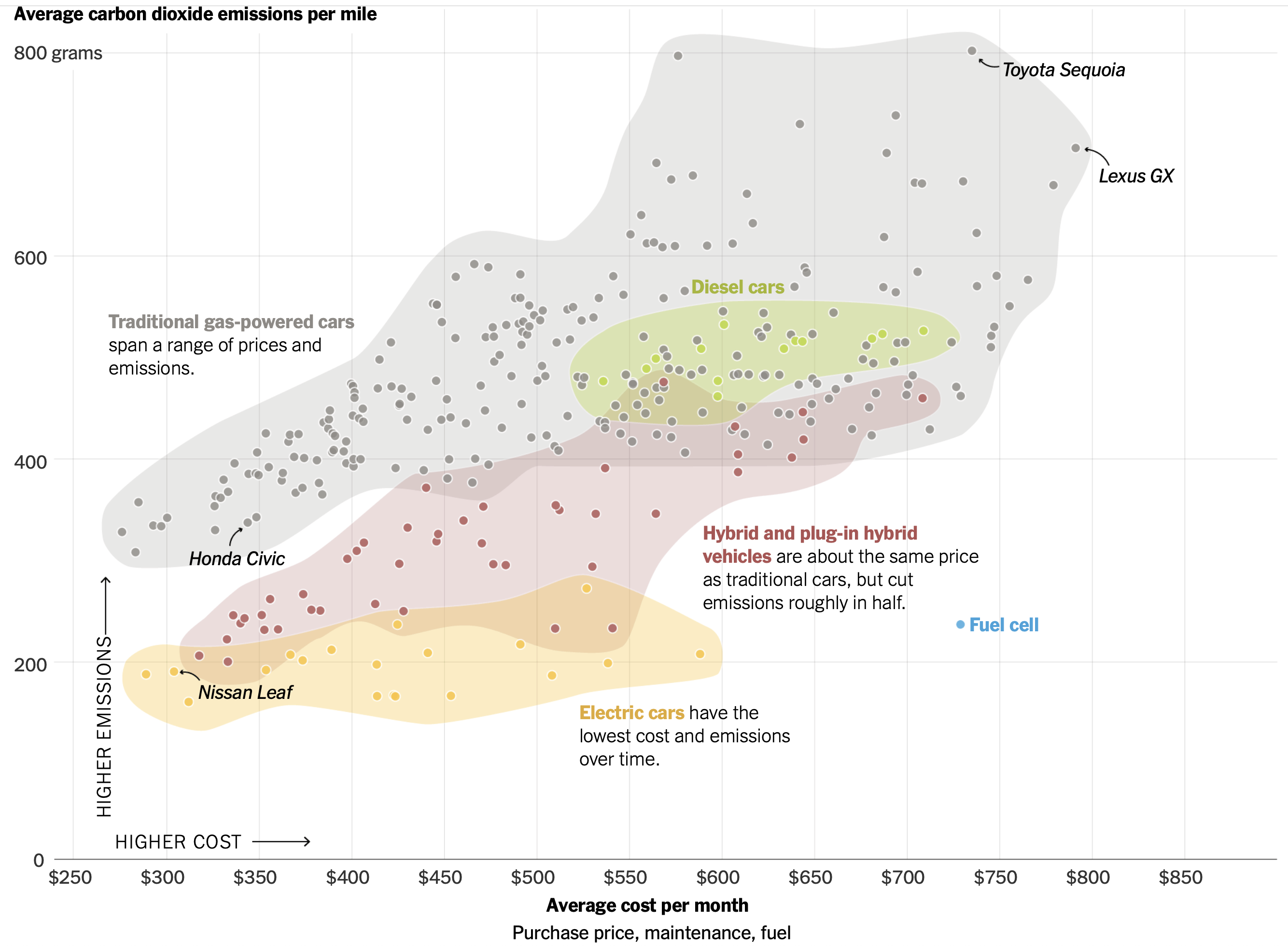 For electric cars, lower maintenance costs and the lower
costs of charging compared with gasoline prices tend to
offset the higher upfront price over time. (Battery-electric
engines have fewer moving parts that can break compared with
gas-powered engines and they don't require oil changes.
Electric vehicles also use regenerative braking, which
reduces wear and tear.)
The cars are greener over time, too, despite the more
emissions-intensive battery manufacturing process. Dr.
Trancik estimates that an electric vehicle's production
emissions would be offset in anywhere from six to 18 months,
depending on how clean the energy grid is where the car is
charging.
INSIDE EVs: EV 101
https://insideevs.com/features/category/ev-101/
INSIDE EVs: Lists
https://insideevs.com/features/category/lists/
INSIDE EVs: EV Education
https://insideevs.com/features/category/ev-education/
TESLA
https://www.tesla.com
ALTERNATIVES TO TESLA
For electric cars, lower maintenance costs and the lower
costs of charging compared with gasoline prices tend to
offset the higher upfront price over time. (Battery-electric
engines have fewer moving parts that can break compared with
gas-powered engines and they don't require oil changes.
Electric vehicles also use regenerative braking, which
reduces wear and tear.)
The cars are greener over time, too, despite the more
emissions-intensive battery manufacturing process. Dr.
Trancik estimates that an electric vehicle's production
emissions would be offset in anywhere from six to 18 months,
depending on how clean the energy grid is where the car is
charging.
INSIDE EVs: EV 101
https://insideevs.com/features/category/ev-101/
INSIDE EVs: Lists
https://insideevs.com/features/category/lists/
INSIDE EVs: EV Education
https://insideevs.com/features/category/ev-education/
TESLA
https://www.tesla.com
ALTERNATIVES TO TESLA
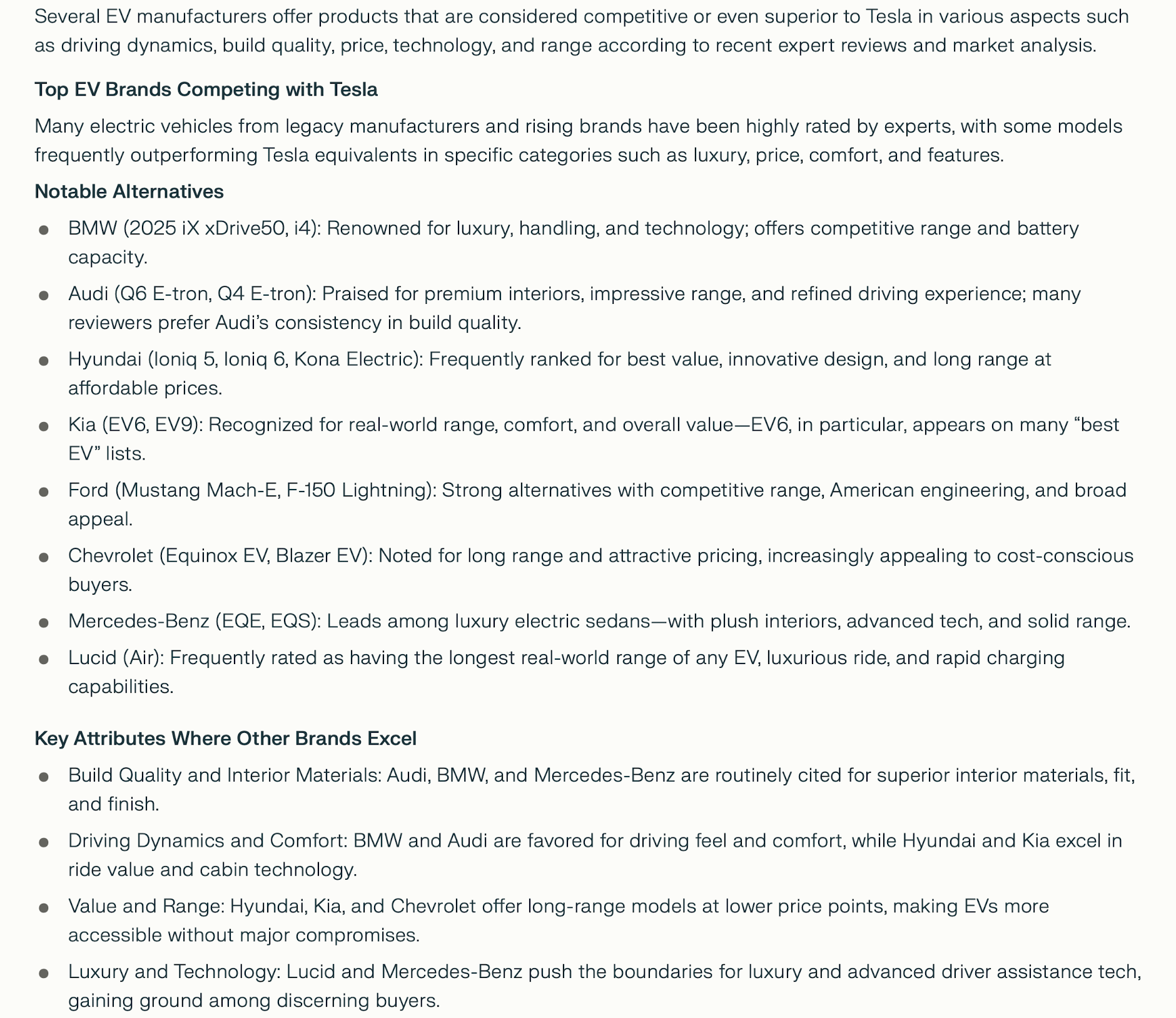
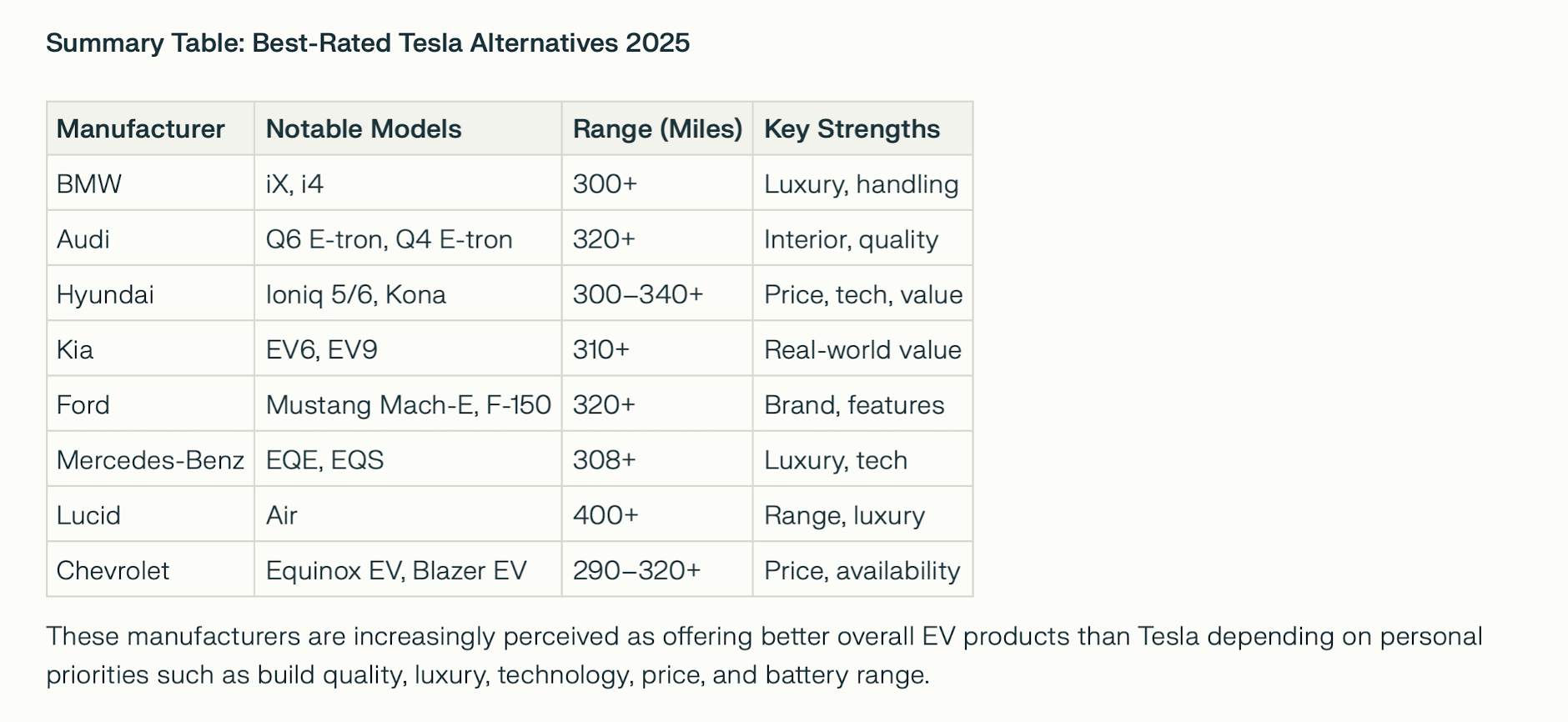 EPA: Green Vehicle Guide
How_Plug-In_Vehicles_Work.mp4 (3 min)
https://www.epa.gov/greenvehicles
EPA: Green Vehicle Myths
https://www.epa.gov/greenvehicles/electric-vehicle-myths
EPA: Green Vehicle Guide
How_Plug-In_Vehicles_Work.mp4 (3 min)
https://www.epa.gov/greenvehicles
EPA: Green Vehicle Myths
https://www.epa.gov/greenvehicles/electric-vehicle-myths






 Best EV Charging Stations in US/IA
https://www.plugshare.com/directory/us
https://www.plugshare.com/directory/us/iowa
https://evhype.com/map/
CHARGE YOUR EVs with SOLAR (further minimizing CO2 emissions)
Solar Power: Reducing your Carbon Footprint
http://edu-observatory.org/olli/Solar/index.html
Best EV Charging Stations in US/IA
https://www.plugshare.com/directory/us
https://www.plugshare.com/directory/us/iowa
https://evhype.com/map/
CHARGE YOUR EVs with SOLAR (further minimizing CO2 emissions)
Solar Power: Reducing your Carbon Footprint
http://edu-observatory.org/olli/Solar/index.html
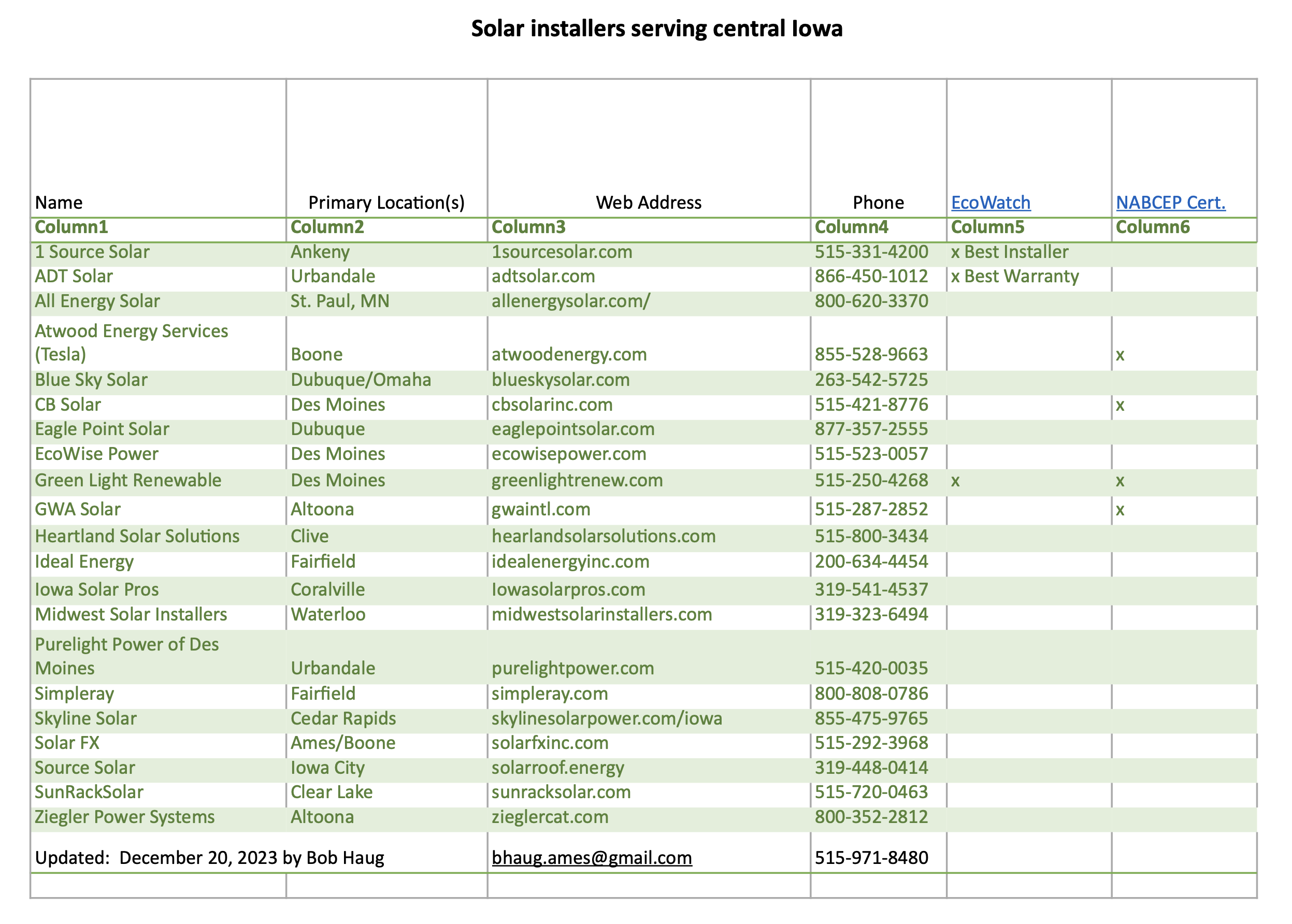 Everything You Need To Know About Electric Car Tires (11+ min)
EV_Tires.mp4
Everything You Need To Know About Electric Car Tires (11+ min)
EV_Tires.mp4
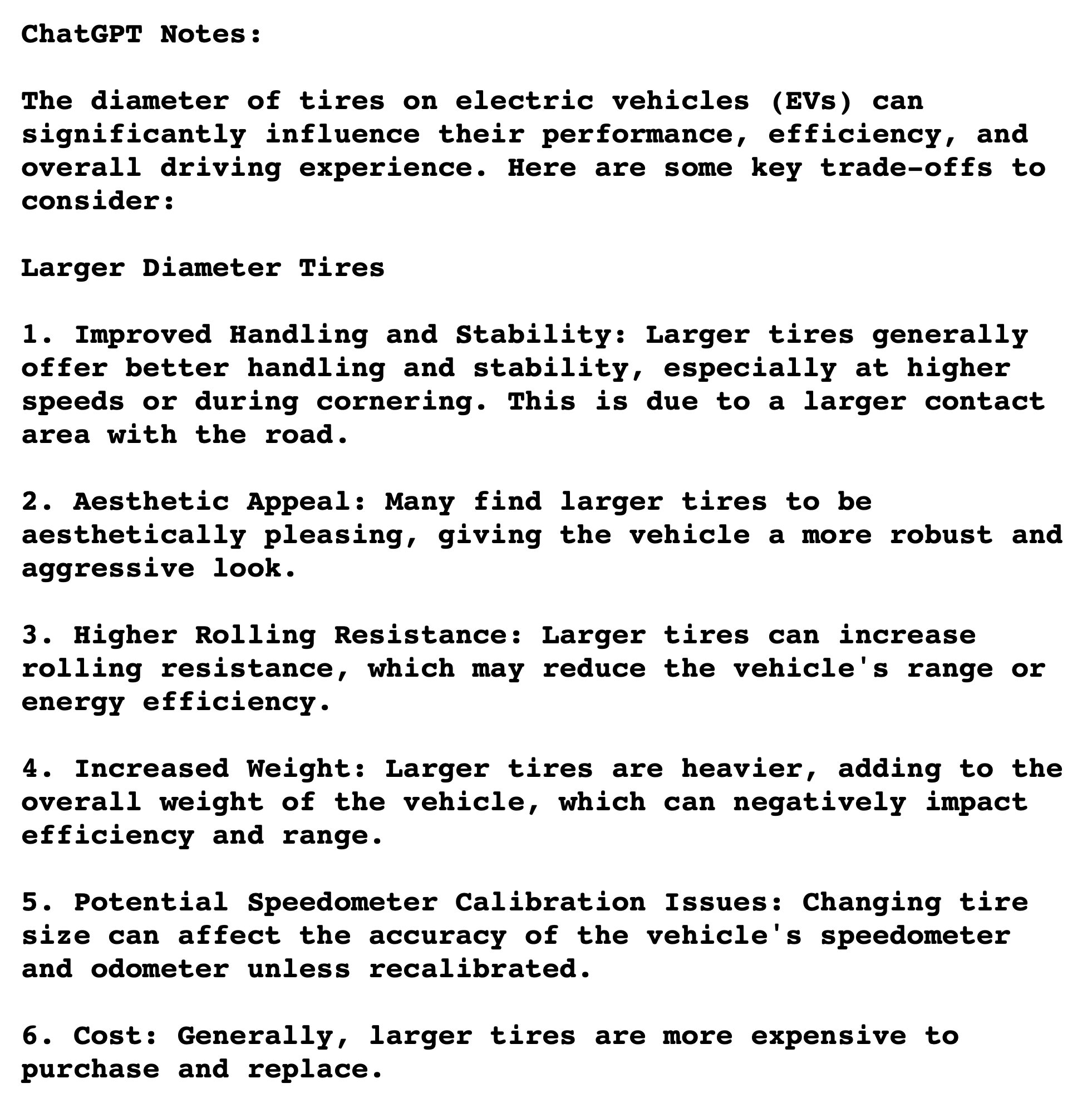
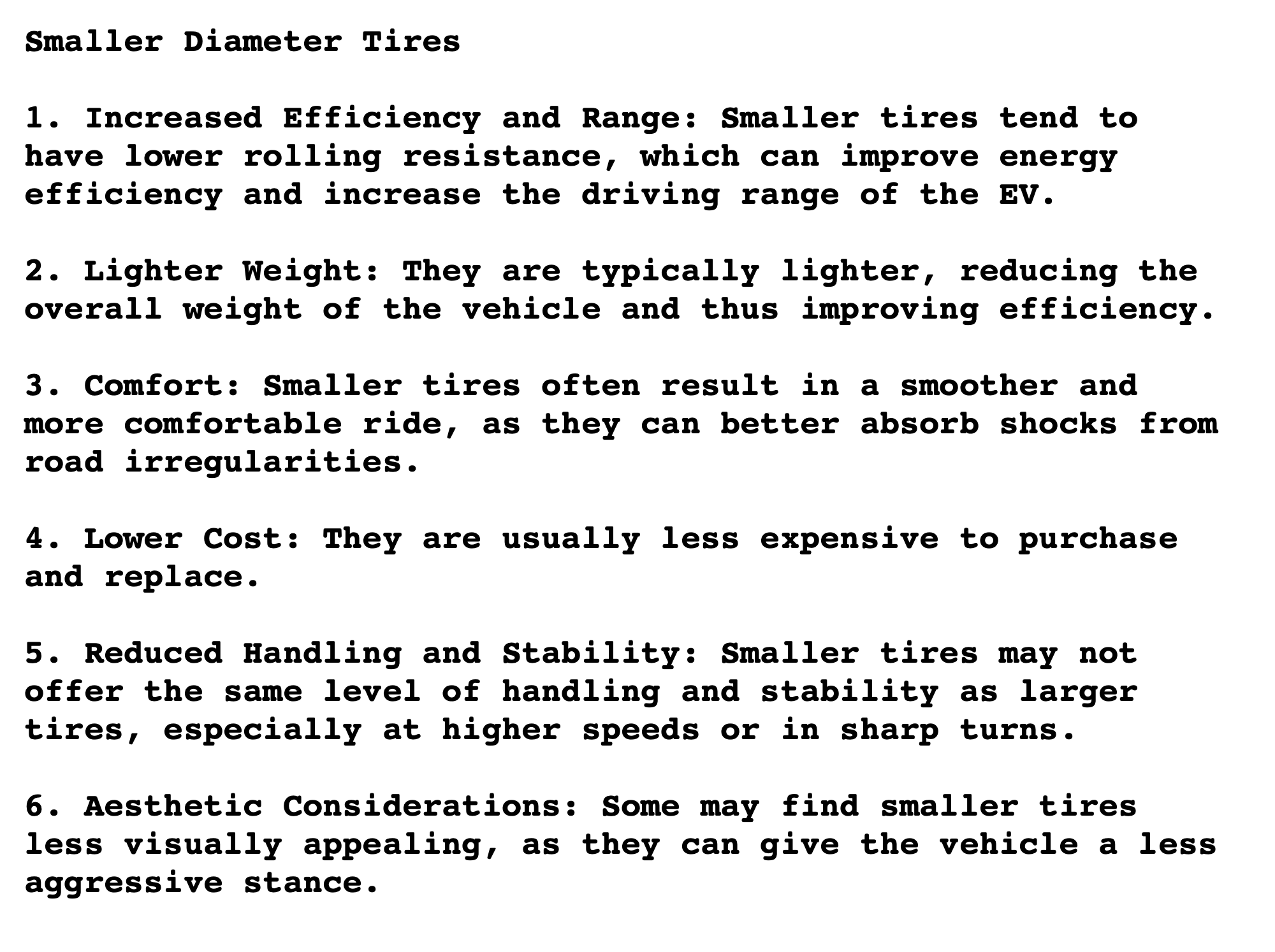
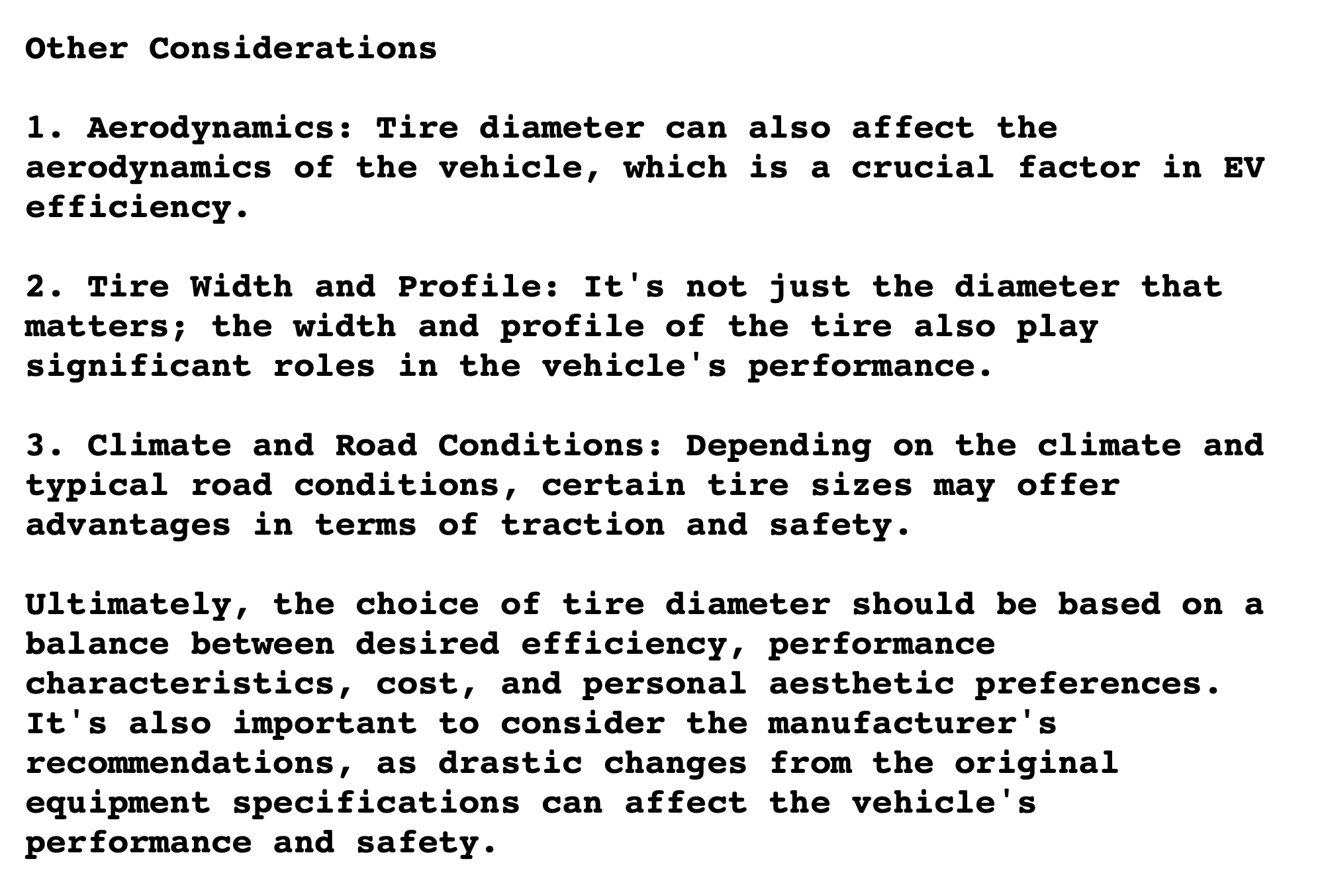 Tire Choices on TESLA Model Y
https://www.tesla.com/modely
Tire Choices on TESLA Model Y
https://www.tesla.com/modely
International Energy Agency (IEA)
IEA: Global EV Outlook 2024
https://www.iea.org/reports/global-ev-outlook-2024
https://www.iea.org/energy-system/transport/electric-vehicles
Electric car sales keep rising and could reach around 17
million in 2024, accounting for more than one in five cars
sold worldwide. Electric cars continue to make progress
towards becoming a mass-market product in a larger number of
countries. Tight margins, volatile battery metal prices,
high inflation, and the phase-out of purchase incentives in
some countries have sparked concerns about the industry's
pace of growth, but global sales data remain strong. In the
first quarter of 2024, electric car sales grew by around 25%
compared with the first quarter of 2023, similar to the
year-on-year growth seen in the same period in 2022. In
2024, the market share of electric cars could reach up to
45% in China, 25% in Europe and over 11% in the United
States, underpinned by competition among manufacturers,
falling battery and car prices, and ongoing policy support.
IEA: EV Life Cycle Assessment Calculator
https://www.iea.org/data-and-statistics/data-tools/ev-life-cycle-assessment-calculator
Life cycle assessment (LCA) is a methodology used to
evaluate the environmental impacts of a product, process or
service throughout its entire lifecycle. This type of
assessment analyses factors such as resource consumption,
emissions and waste generation to inform more sustainable
decision-making. This tool focuses specifically on the GHG
emissions of passenger cars.
EDF: Electric Vehicle Total Cost of Ownership Analysis
https://www.edf.org/sites/default/files/2023-07/WSP%20Total%20Cost%20of%20Ownership%20Analysis%20July%202023.pdf
This analysis compares the lifetime costs - over 10 years -
of owning and operating selected EVs to the cost of
comparable gasoline vehicles Costs include purchase of
vehicle and home charger (for EVs), annual vehicle
registration, maintenance, insurance, and fuel costs.
Electric Vehicles have higher upfront purchase costs and
insurance costs, but these are more than offset by fuel and
maintenance cost savings - which make EVs more
cost-effective over their life.
Recommendations and Reviews
DOE & EPA: Find and Compare Cars
https://www.fueleconomy.gov/feg/findacar.shtml
Edmons: Best Electric Cars of 2024 and 2025
https://www.edmunds.com/electric-car/
Car And Driver: Best Electric Venicles for 2024 and 2025
https://www.caranddriver.com/rankings/best-electric-cars
INSIDE EVs
https://insideevs.com/reviews/category/car-reviews/
HYBRID (HEVs) & PLUG-IN HYBRID ELECTRIC VEHICLES (PHEVs)
Explaining Hybrid & Plug-In Hybrid Electric Vehicles
https://www.epa.gov/greenvehicles/explaining-electric-plug-hybrid-electric-vehicles
Hybrid Vehicles (HEVs/PHEVs)
https://www.fueleconomy.gov/feg/info.shtml
HYDROGEN FUEL CELL VEHICLES (FCVs)
Hydrogen Fuel Cell Vehicles (EPA)
https://www.epa.gov/greenvehicles/hydrogen-fuel-cell-vehicles
Hydrogen Fuel Cell Vehicles (FCVs) are similar to electric
vehicles (EVs) in that they use an electric motor instead of
an internal combustion engine to power the wheels. However,
while EVs run on batteries that must be plugged in to
recharge, FCVs generate their electricity onboard. In a fuel
cell, hydrogen (H2) gas from the vehicle’s fuel tank
combines with oxygen (O2) from the air to generate
electricity with only water and heat as byproducts of the
process.
Compare Fuel Cell Vehicles (EPA)
https://www.fueleconomy.gov/feg/fcv_sbs.shtml
For electric cars, lower maintenance costs and the lower costs of charging compared with gasoline prices tend to offset the higher upfront price over time. (Battery-electric engines have fewer moving parts that can break compared with gas-powered engines and they don't require oil changes. Electric vehicles also use regenerative braking, which reduces wear and tear.) The cars are greener over time, too, despite the more emissions-intensive battery manufacturing process. Dr. Trancik estimates that an electric vehicle's production emissions would be offset in anywhere from six to 18 months, depending on how clean the energy grid is where the car is charging. INSIDE EVs: EV 101 https://insideevs.com/features/category/ev-101/ INSIDE EVs: Lists https://insideevs.com/features/category/lists/ INSIDE EVs: EV Education https://insideevs.com/features/category/ev-education/ TESLA https://www.tesla.com ALTERNATIVES TO TESLA

EPA: Green Vehicle Guide How_Plug-In_Vehicles_Work.mp4 (3 min) https://www.epa.gov/greenvehicles EPA: Green Vehicle Myths https://www.epa.gov/greenvehicles/electric-vehicle-myths






Best EV Charging Stations in US/IA https://www.plugshare.com/directory/us https://www.plugshare.com/directory/us/iowa https://evhype.com/map/ CHARGE YOUR EVs with SOLAR (further minimizing CO2 emissions) Solar Power: Reducing your Carbon Footprint http://edu-observatory.org/olli/Solar/index.html
Everything You Need To Know About Electric Car Tires (11+ min) EV_Tires.mp4


Tire Choices on TESLA Model Y https://www.tesla.com/modely